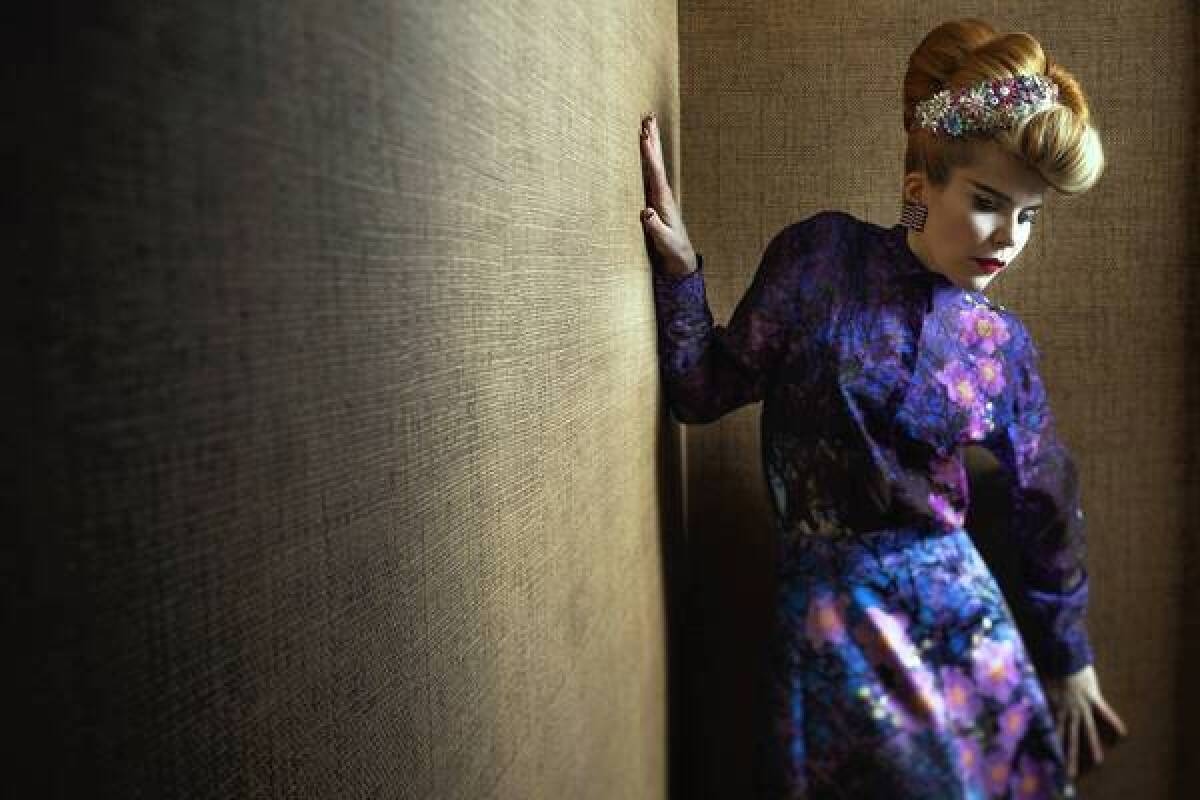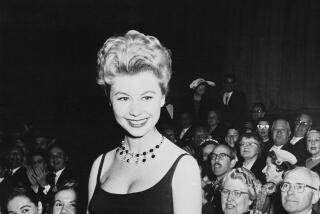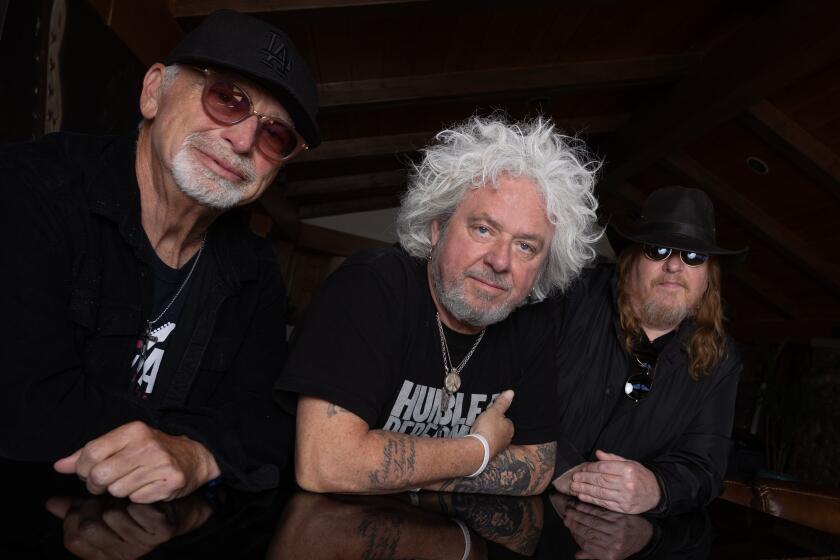Paloma Faith stands out in the soul crowd

As a young British soul singer trying to capture an American audience, Paloma Faith would seem to be under intense pressure to duplicate Adele’s record-setting example.
That’s not the way she sees it.
Chatting the morning after a recent concert at L.A.’s Hotel Cafe, Faith said her achievements in the United Kingdom have liberated her to some extent from the need to succeed in the United States. Back home, platinum sales of her two studio albums led to a gig carrying the Olympic torch through London — in red stiletto heels.
“I’m lucky — I know I’ve already got a career,” she said over breakfast. No one in the Hollywood Boulevard diner seemed to recognize her exactly, but all took notice of her stage-perfect hair and vintage wardrobe. “I know I can pay my rent. So I’m excited to try it here, but I don’t feel like my life will end if I fail.”
GRAPHIC: Times music staff best of 2012 list
Perhaps it’s that que sera, sera attitude that enabled Faith, 27, to preserve her considerable peculiarities on “Fall to Grace,” which Epic Records released Dec. 4 following an earlier appearance in Europe. (Faith’s 2009 debut, “Do You Want the Truth or Something Beautiful?,” didn’t come out in the U.S.)
Though it’s rooted in the same old-fashioned soul-music sounds — and the same fixation on romantic turmoil — as Adele’s smash-hit “21,” “Fall to Grace” ventures further afield with squelchy dubstep synths, tart, Bollywood-style strings and throbbing post-hip-hop beats from producer Nellee Hooper, known for his work with Soul II Soul, Gwen Stefani and Björk.
“It’s always been important to me not to be a simple pastiche,” Faith said. “Why re-create something that happened so wonderfully the first time?”
There’s also the singer’s dramatic visual flair, with high-contrast make-up and a mile-high bouffant, as well as her broad Cockney accent, which can make Adele’s speaking voice seem BBC-neutral by comparison.
“I think Paloma definitely comes off more English,” said Rick Krim, executive vice president of music and talent relations at VH1, which last month featured Faith on its “Divas” special alongside Kelly Clarkson and Miley Cyrus.
Yet Krim added that the strength of Faith’s singing — particularly in the album’s sweeping lead single, “Picking Up the Pieces” — allows her to appeal to listeners anywhere.
“The song just sounds great on the radio,” he said.
Five questions for the L.A. pop scene and beyond for 2013
Growing up between the homes of her divorced parents, Faith discovered music through her father’s jazz collection.
“Then when I hit puberty I kind of realized I wasn’t going to have an androgynous figure and couldn’t be a tomboy anymore,” she said with a laugh. Her next obsession, at age 12, was Marilyn Monroe, who awakened her to the notion of “strength, rather than vulnerability, in femininity,” she said.
After graduating from Central Saint Martins College of Art and Design, Faith began playing around London, though her sensibility at the time was darker and more avant-garde than it is now — “sort of Tim Burton meets Matthew Barney,” as she described it.
She remembered one performance for which she’d rigged up a white dress with small packets of blood. During a song about “the loss of childhood,” she pricked the packets with tiny pins, which caused the blood to seep out slowly.
“A record label was at that show,” she said. “They came up to me afterward and were like, ‘We think you’re brilliant and we love your voice and we really want to work with you. But you can’t do that anymore.’”
She’s since dialed down the gore but not her attraction to an arresting image: In the black-and-white video for “Just Be,” a delicate piano ballad from “Fall to Grace,” she appears naked, covered only by an enormous bird tattoo on her left shoulder.
And even on the tiny stage at Hotel Cafe, she radiated big-room charisma, dropping to the floor to deliver a rendition of “Let Me Down Easy,” a tough-love lament popularized in the 1960s by one of Faith’s favorite singers, Bettye LaVette.
“Working with Paloma reminded me of my earliest dealings with Björk,” said Hooper, who recalled Faith’s turning up for their first meeting with a bag full of DVDs. “She approached every song almost as a short movie.”
As that mind-set suggests, Faith can come across like a character, her kooky, outsized persona some kind of post-modern put-on. After all, she has worked as an actor in several films, including Terry Gilliam’s “The Imaginarium of Doctor Parnassus.”
“She’s never offstage,” Hooper said. “You meet with her anywhere and she’s fully in Paloma mode. It’s not fake, though — she’s just like that all the time.”
Faith acknowledges that she’s willfully emphasized some of her quirks, not least her taste for garish nail designs, which she indulged in while she was in L.A. But what separates her from any number of Top 40 fakers, she insisted, is that her eccentricity preceded her fame.
“I didn’t adopt it for the purpose of being in music,” she said. “I’ve always enjoyed dressing up and changing my hair color and standing out from the crowd. It’s as simple as that.”
PHOTOS AND MORE
PHOTOS: Iconic rock guitars and their owners
The Envelope: Awards Insider
PHOTOS: Grammy top nominees
More to Read
The biggest entertainment stories
Get our big stories about Hollywood, film, television, music, arts, culture and more right in your inbox as soon as they publish.
You may occasionally receive promotional content from the Los Angeles Times.











